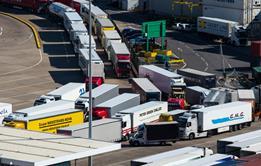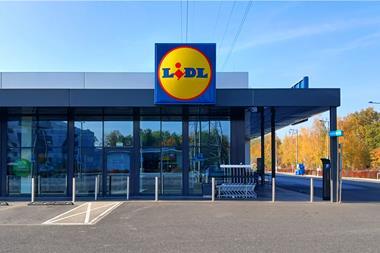Grocery retailers have hit back at the Government by issuing a fresh warning that a no-deal Brexit will spark shortages of fresh food and potential price rises.
The British Retail Consortium, which represents a number of the UK’s largest supermarket retailers, told MPs it could not understand why Michael Gove had claimed otherwise in a BBC interview at the weekend.
Although fresh food travelling to the UK from the EU will not be subject to border checks, delays could be sparked by checks in France. Such a move would mean perishable fruit and vegetables in particular, such as strawberries, lettuce and tomatoes, could be hit by delays, impacting their freshness when they reach the UK.
The BRC’s director of food and sustainability Andrew Opie told MPs on the Brexit select committee that Brexit “will affect fresh food in various ways – availability, shelf life and potentially cost”.
He added: “Our assessment is based on discussion with our members, who move fresh food every day, and the likely disruption.
“We modelled that with our members who have told us there will be disruption to fresh food.”
Nightmare timing
Opie echoed the sentiments of Tesco boss Dave Lewis and Sainsbury’s chief executive Mike Coupe, both of whom have lamented the timing of Brexit on October 31.
Lewis and Coupe warned that, at a time when the supply chain is already nearing full capacity to gear up for the crucial Black Friday and Christmas trading periods, there would be limited room for retailers to stockpile longer-life goods, or general merchandise products such as toys and white goods.
Opie said Halloween was “probably the worst time to face a no-deal Brexit” because logistics “are already at full stretch” and warehousing “is at full premium”.
He added that the BRC had warned the Government and MPs of the food-related risks as far back as January.
The Brexit committee also heard that Calais and Eurotunnel ports would be “clogged up” if the UK were to crash out of the EU without a deal.
HMRC’s former head of Brexit border delivery, Karen Wheeler, said even if 80% of trucks travelled the routes from Dover or Folkestone to Calais by ferry or train, there would be issues.
She said HMRC had assessed back in June that around 50% of trucks could turn up at the port without the correct paperwork for export.
French authorities told HMRC at the time that they “might hold those trucks for between two and eight hours” if they did not have the correct customs declarations documents.
Supermarkets in fresh warning over no-deal Brexit shortages

Grocery retailers have hit back at the Government by issuing a fresh warning that a no-deal Brexit will spark shortages of fresh food and potential price rises.
 Currently
reading
Currently
reading
Supermarkets issue fresh warning over no-deal Brexit food shortages
- 2



























No comments yet